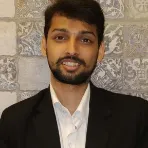RE THINKING ON THE INDIAN COURT VACATION SYSTEM – A VICIOUS CYCLE IN DELAYED JUSTICE.
Posted On : March 22, 2020

Table of Contents
At the threshold, let me start my stating this that unlike my previous blogs, I cannot just pen down points here and elaborate the same. As simple as the topic may sound, there is more to it than what catches to the naked eye. I shall try to bind all possible threads and make it as an interwoven fabric so that the readers understand this topic beyond just court vacations. The reason of writing this blog is that ‘Court Vacations’ have become more like a black spot to the Indian Judicial System. Come what may, it all drools down to the point of concern that courts have vacations and hence justice isn’t delivered. Having said that, let us understand where the problem stands, what is it that really bothers us? Is it the vacations or is it delay in Justice?
Let me start by deducing the Indian Court Vacations
Then again, this is not that easy to explain is it? Let us understand the problem here. Is it the vacations that we are bothered off or are we concerned about the non functioning of the courts? Clubbed together we as normal citizens find the Courts to be at the premium advantage of not working for a variety of possible reasons. So, coming back and revising the idea, talking just about the vacations is not helping us anymore. We need to understand reasons of the Courts not functioning and why.
Though the District and Sessions Court along with lower courts have a lesser number of holidays and vacations and are work for more number of days than compared to a High Court of Supreme Court, my prime area of concern shall be the Non functioning of High Court and Supreme Court. Let us now understand the reason as to why the Courts Do not Function.
- Calendar Vacations
- Notification / Circular (Not to Attend)
- Full Court Notifications
- Government declarations
- Superior Court recommendations
- Other External Factors
Talking about High Courts – The High Court function for a total of 22 days in a month (except Saturdays and Sundays). The average working time of these courts are from 10.30 am to 4.30 pm (i.e. 6 hours).
As per the Supreme Court Annual Report 2016 – 2017, the Pendency Data of the Calcutta High Court (as on April, 2018) stands at 2,24,760 cases with a total number of working days being 213 and Vacancies/Sanctioned Strength of 35/72.
On the other hand the Pendency Data of the Supreme Court of India stands at 55,259 cases with a total number of working days being 188 and Vacancies/Sanctioned Strength of 8/31.
This in itself shows the bad shape of the Indian Judicial System and on top of it we all know how lethargic the system works. To be honest and brutal in my opinion, The Calcutta High Court rarely functions from 10.30 am to 4.30 pm.
Hypothetically if I am to understand a ‘Full Court Notification’ is downright everyday which reduces the functioning of the Court till 3.30 pm (1 hr less). Mathematically speaking, that means 22 hrs of courts not functioning in a month. In the alternative it stands out to be 3.5 days of no court functioning on the account of demise (if I have to presume 6 hrs of work). This is however not included because the courts do function but they function 1 hr less. This is like that disguised vacation which is present yet not known of .
Talking about the Vacations, I find no other profession which has the liberty to take these many days as off. The vacations hit the litigants hard specially when the amount of pending cases are piling up year by year and the appointment of new judges are not only rare but scarce.
There has been a lot of talks over how to overcome this situation. Vacations are a need and I on my part would do injustice by saying that vacations play a role in delayed justice and that judges should be working 24*7, 365 days in a year to create a revolution in pendency of cases.
Unlike what the normal public are not aware of, a judge works more than what we think off. Starting from hearing of cases to passing of orders and then writing judgement which needs to be so accurate that the compliance of the same should go in vain just due to a technical error or a typographic mistake. Even a full stop and a comma can make the difference and this is the unsaid mental labor a judge puts in to earn leaves.
Let us address the issues first and then understand the measures.
As a voice of a common man, the issues which I face for delayed justice are the following: -
- Vacant Judges
- Resolutions of the Bar
- Vacations of the Courts
- Adjournments and other technical delays
As absurd as it may sound 2020 made me witness something which was unimaginable even to me. Courts had resolutions of ‘Not to pass any adverse Order’ on three consecutive days on account of Idol immersion. This was unfathomable and this is where it hits the litigant hard.
Understanding that there is a lot of vacancy of Judges and that there is immense pressure on the judicial system. India has just 13 judges per million of a population and this is not the best of the state. The judges have become old and some are nearly on their age of retirement. If this continues, the situation might even worsen with coming days.
Let us think of a way forward.
There are problems and there will always be problems. However, that should not stop justice from being delivered to the one who is in need of it and the protectors of justice should not just fold hands saying there is no way out and that this is how it has been going on till date and this is how it will.
There needs to be brainstorming into what is the best of what we have and what is the best we can do. A judicious decision should be taken.
Say for example if we cannot appoint as many vacant judges we should try and use the time of the judges till the time in office. We can try utilizing more time in adjudication. It deduces a simple analogy (MORE WORK IS MORE ADJUDICATION)
As per reports it will take 320 years for the Indian Judiciary to clear the number of backlog cases. Yes you heard that right, 320 years!!!!!
This is also evident from the 120th report of the Law Commission which talks about bringing the ratio to 50 per million.
The idea of a 365 round the clock working court system has gone in vain. There have been attempts which have not found good space with the Bar. Our very own Former CJI ‘R.M. Lodha’ had a similar idea in mind which was let down by the disagreement of the Bar. It was just 24.5% who agreed to do away with such vacations as compared to others who disliked the very idea. 48.2% were open to the idea of reduction in the number of days off.
Conclusion and Opinions
Let this be said that Vacations are not a direct reason for delayed justice but there are many other factors which play a role. However, the same is not known to the common public and as such they deduce an opinion on what they see and that is judges not working and holidays being awarded at random with courts not even functioning on days they sit and judges seats being vacant. What the common man wants is better adjudication and fast disposal. However, what they do not know is the burden of the courtroom no one speaks of. Advocates run a case for months, years and maybe decades even and they expect a judge to deliver a judgement in minutes. A judge is also a human being and the mental strain cannot be quantified. However, this does not mean that we can shy away from the fact that there are latches (far bigger ones from our end) which if blocked can help if not reduce the pendency of cases, taking into consideration the new filing which need urgent attention in some manner or the other.
I therefore, in the light of the above would share some of my personal idea which shall help in some manner or the other.
- Appointment of more judges – This is the first and foremost step which needs to be taken, even if the courts function round the clock it will hardly help in any manner until and unless there are fair number of judges to share the burden.
- High Courts to be working in tandem with lower courts (i.e. similar holidays and working Saturdays)
- Reducing vacations to the least number of days.
- Rotation of judges during vacations so that certain courts even function while on vacations. The basic idea is that court proceedings should not come at a halt at any cost. They should be working just like hospitals and uphold the dignity of the profession.
- Advance leave application of judges who will not be present and appointment of judges in their space who shall hear cases on their behalf.
- Static time to be fixed per case (say 20 mins) so that the number of cases being heard is more and no case goes on and on for hours.
- To reduce whatever can be into writing just like consumer forums.
- To fix a non working Saturday as a mourning day for all those who have died in a month. This shall mathematically improve the hours of work of the courts.
- To levy cost on Adjournments – The Indian Judiciary should look forward to a ‘No Adjournment’ litigation phase.
- Institution of vacation benches in High Courts and Supreme Court.
- Institution of Circuit Benches of Supreme Court in every state which shall work on long vacations of the Supreme Court.
This list and ideas are not exhaustive. They are just some of the basic idea which shall start a cycle helping in better adjudication.
























